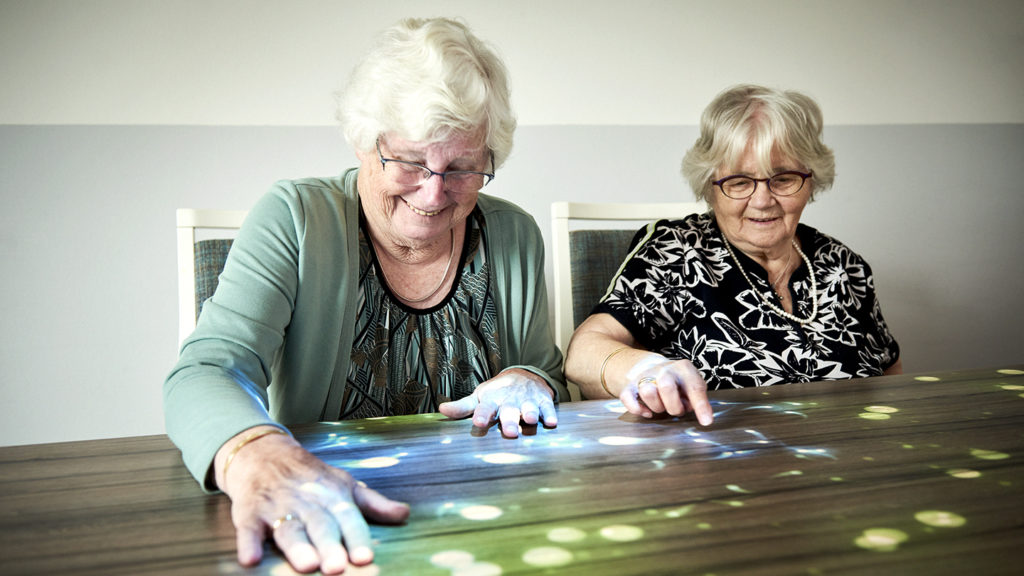
As a post-pandemic lesson and consequence, many senior living and care facilities are looking at ways to decrease older adults’ isolation and find innovative ways for them to interact with one another.
Several sites have recently added Netherlands-based Tover’s “magic table” — or “Tovertafel” in Dutch — to their recreational offerings. It is a tactile tool that includes games, puzzles, art projects and other stimulating activities.
Memerac Bluffs, a Lutheran Senior Services retirement community near St. Louis, announced that it had received an overwhelming positive response from residents after installing the Tovertafel.
Similarly, Rockingham Rehabilitation and Nursing Center, located in Brentwood, NH, said it had become the first site in the state to use the “magic table” when they added the tech in June, according to a recent news story.
The “magic table” works via an overhead console that projects images onto a surface. The console can also detect movement from users below. The technology was specifically designed for those with cognitive impairments, such as seniors with dementia, the McKnight’s Clinical Daily has reported.
The available games include a virtual “mole hunt,” where users have to exercise their arms, and “sheet music”, where musical notes appear and play when users “touch” them.
Tover presented at last month’s Alzheimer’s Association International Conference, where the company touted a study showing the benefits of using its table in nursing homes.
The company claimed that even beyond improving quality of life for residents, the study proved that the Tovertafel “enhances job satisfaction for care professionals, and creates a comforting, homelike environment for everyone.”
Although the Tovertafel is aimed at a specific subset of older adults, there is a push more broadly for games and puzzle options for seniors, both among developers and the caregiving community. Recent studies have linked puzzle games in particular to dramatically aiding and improving memory.


